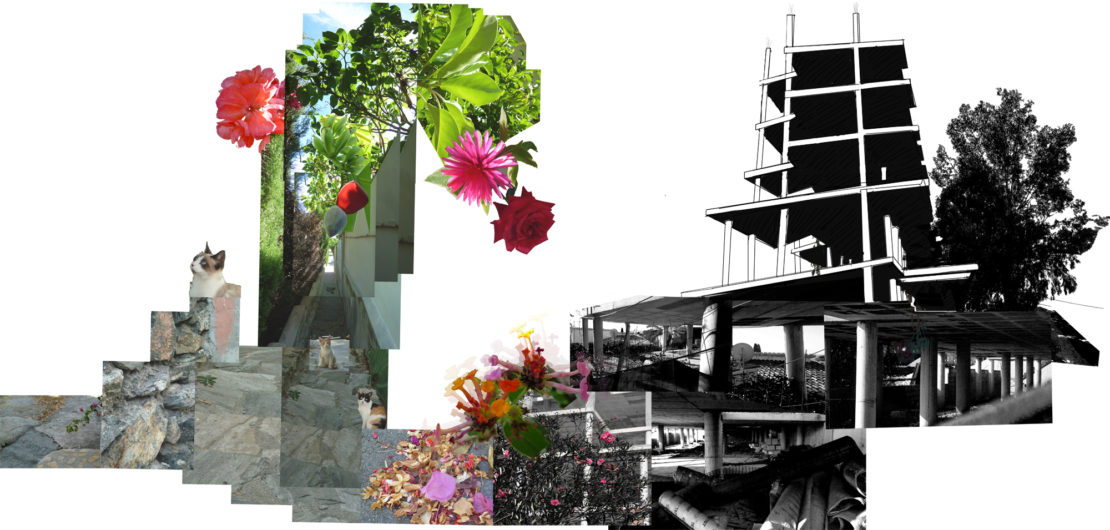Landscapes in Ruin
Gádor Potenciano Enciso


As a result of the land speculation in the latest years, there has
been an enormous destruction of the landscape in which we dwell.
This speculation has affected tourism specially with the massive
construction of hotels at the tropical coast of Granada, and it
has created a landscape filled with out of scale buildings that
completely spoil it, as in Almuñecar.
Numerous buildings of this kind have not been finished and they
have become premature ruins that are a part of a landscape that
needs to be recomposed.
This empty skeletons allow us to imagine beyond what they would
have become if they had been completed by thinking of time, of how
they will look and how they incorporate to their surroundings.
Places that foretell the future of a city, a city with a past, but
whose present times are also its history.
In this context, it is about looking for a project that reconciles
the most characteristic elements of the landscape with the new
needs and necessities of the present to achieve the integration,
not only at its closest ambit, but also in its whole environment.
The local vegetation, its agricultural landscape and its crops and
fruits are taken as elements to make a project, a garden.
The ruin are placed at the edge of an old road, at the town’s
uppermost part, in a neighborhood of small houses and two story
chalets.
It is thought as a multifunctional program which can create
connections between the ruin and the neighborhood but also with
the town and the farmland.
First, it is created a path among gardens, parks and orchards that
allow us to create the connection between this garden and the
others. The making of this new route makes the adequation of the
roads amidst farmlands a necessity, so roads would become of
public usage. In exchange, the farmers collective would have a
place in the building’s uses program, through the creation of a
market place of fruits and vegetables where they could sell their
products without intermediaries.
Second, a local shop in the neighborhood is willing to move into
this new structure. It is a gardening center that, due to the lack
of space and this new possibility of visibility and accessibility
improvement, would transfer its business to the ruin because it
has better access by its positioning at the edge of the road.
Finally, it is presented a new form of temporary, collective and
changing accommodation inside the ruin to incorporate tourism into
the program. It is about a high-rise camping-hotel where the rooms
are immersed in the garden’s vegetation.
It is a synthetic proposal between ecology, production, tourism,
leisure and trade understood as a new way of integrating the
mistakes produced by a system based of the speculation.
Credits
Landscapes in Ruin. Modern ruin
Author:
Gádor Potenciano Enciso
2016
